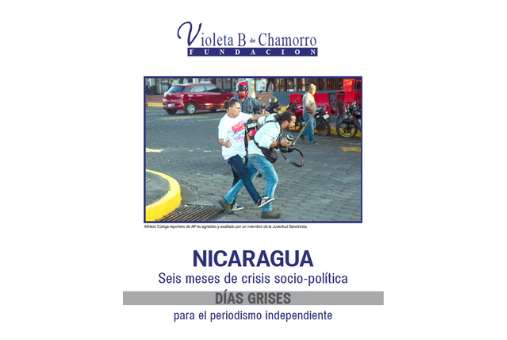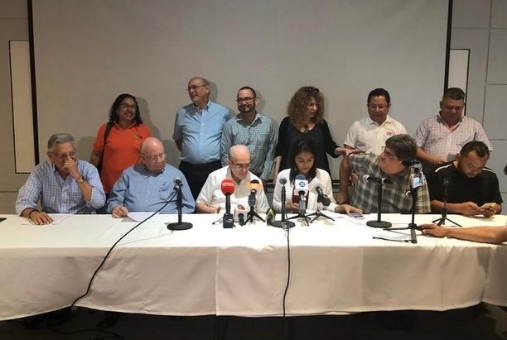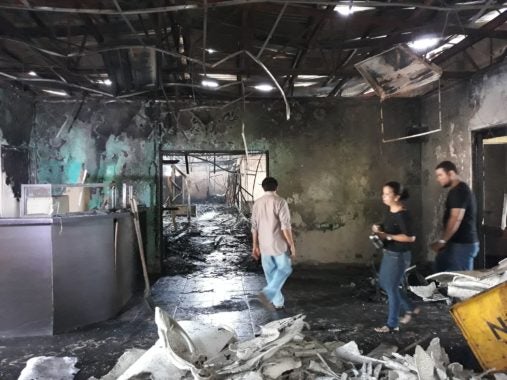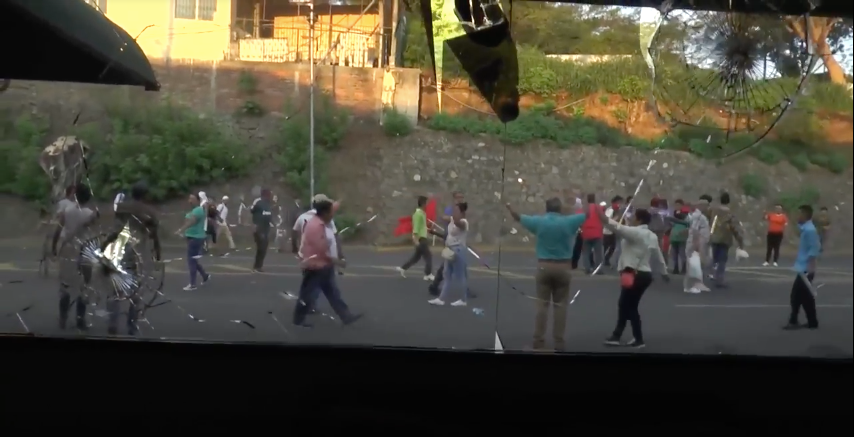
There have been 420 violations against of press freedom since protests began in Nicaragua last April, according to a new report from the Violeta Barrios de Chamorro Foundation (FVBCH, for its initials in Spanish).

For "its professionalism and courage in the face of indiscriminate violence of the Daniel Ortega regime," the Inter American Press Association (IAPA) awarded the 2018 Press Freedom Grand Prize to independent journalism in Nicaragua, the organization announced on Sept. 5.

The two young men of African descent who were accused of murdering journalist Ángel Gahona on April 21 were found guilty by a Nicaraguan judge on the night of Aug. 27, Confidencial reported.
News that Carlos Pastora, general manager of Canal 10 of Nicaragua, sought refuge in the Honduran embassy in Managua awoke rumors of alleged persecution by the government of Daniel Ortega against the channel.
Nicaraguan press workers organized a sit-in in Managua as detentions of and attacks on journalists continue, with two detentions in the past week.
The Inter-American Commission on Human Rights (IACHR) adopted precautionary measures for the widow of a journalist killed in Nicaragua while covering protests and members of a radio station that was set on fire.

As attacks against journalists in Nicaragua grow after months of protest, independent journalists in the country are calling for freedom to carry out their work. They are also expressing hope in the international organizations on the ground that are working to curb violence in the Central American nation.

The headquarters of Radio Nicaragua, state radio station of the Central American country, was attacked and destroyed by a fire in the early morning hours of June 8, according to local press reports.

While reporters don helmets to cover violent protests in Nicaragua, human rights and press organizations are calling on the international community to pay attention to attacks on journalists and news media amidst protests against the government of President Daniel Ortega.
A statement from independent Nicaraguan journalists condemning lethal violence on protesters and attacks on the press, and urging respect for press freedom from the government, has garnered signatures from 35 media outlets, four civil society organizations, 87 journalists and counting.
Two suspects in the murder of Nicaraguan journalist Ángel Gahona were sent to prison on May 8 after an initial hearing before a district judge in Managua, the country’s capital, La Prensa reported. However, the journalist’s family as well as the detainees and other civil society organizations, are protesting the accusation made by the public prosecutor’s office, saying it is a strategy of the authorities to avoid accusing the real perpetrators.
Numerous television and radio news outlets in Nicaragua were attacked or experienced signal interruptions during coverage of the wave of protests that erupted throughout the country due to a reform to the Social Security Law by the government of President Daniel Ortega.